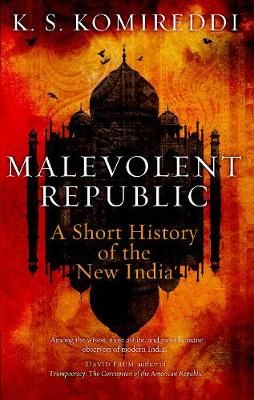
Komireddi’s central thesis is that India is undergoing a creeping, bottom-up political and cultural revolution that could conceivably bring about a Hindu nation-state, a mirror image of Pakistan, in which 200 million Indian Muslims end up as second-class citizens. However, it is the Hindu nationalist BJP, and Modi in particular, who cop the brunt of the author’s ire. For Komireddi, the result was both regrettable and inevitable, a logical outcome of decades of the Congress Party’s corruption, dynastic rule and betrayal of India’s secular foundations for short-term political gain. The Congress Party – which secured India’s independence in 1947 under the leadership of Jawaharlal Nehru and the cajoling of Mahatma Gandhi – was shattered by its worst ever electoral performance, gaining less than 20 per cent of the national vote. Komireddi’s strident book appears in the wake of last year’s historic election victory for Prime Minister Narendra Modi and his Bharatiya Janata Party (BJP). But then, I am also reminded of Nobel Laureate Amartya Sen’s celebration of the “argumentative Indian”, and his vision of India as an ongoing religious, political and economic arm-wrestle. Recently, reading Kapil Satish Komireddi’s debut book-length polemic Malevolent Republic: A Short History of the New India, I was reminded of that moment in Shanghai when a renowned Indian author seemed to me to lose perspective. Yet she was speaking about the world’s largest democracy, India.

She spoke of political horrors so extreme you would have thought her topic was Nazi Germany.


Roy has a beautiful voice, the kind that makes you want to close your eyes and just listen to her cadences.


 0 kommentar(er)
0 kommentar(er)
